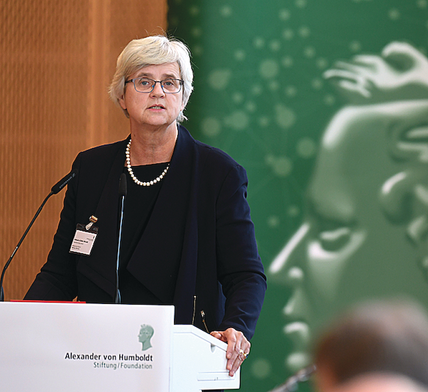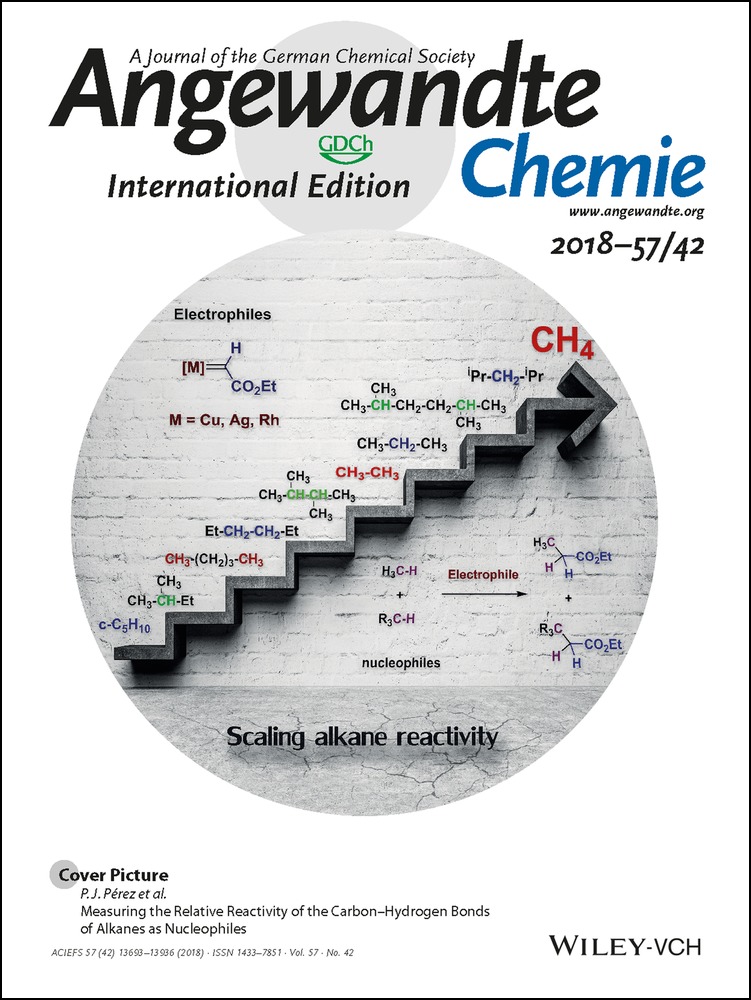How We Can Rebuild Trust in Science—And Why We Must†
The views and opinions expressed in this article are those of the authors.
Graphical Abstract
“… Achieving our core mission, namely progress through knowledge, now requires two kinds of communication: one to our scientific peers, but another, more fraught yet critical, to the broader public. As scientists, we need to forge a better relationship between the world of research and the general public …” Read more in the Guest Editorial by K. Boele-Woelki, J. S. Francisco, U. Hahn, and J. Herz.
Repeated controversy around conflicting findings and low reproducibility rates in some fields of science,1 as well as changing prevailing opinions among scientists and government agencies has attracted attention beyond the academic world. This has contributed to a decline of trust in scientific scholarship at precisely the moment when false “science” by non-experts and unsubstantiated attacks on real science are gaining traction in public discourse and public policy. Does this matter? Yes, it does. When the public doesn't trust scientific research, initiatives that bring palpable benefits to society are at risk. The growing crisis of declining trust in scientific scholarship affects the future of us all.
It is reasonable for the general public to feel skeptical. Particularly, when cases such as fake stem-cell lines,2 duplicated and falsified graphs,3, 4 and faked data5 illustrate how easily fabricated findings can be published in prestigious journals, but their discovery damages the image and trust in science by the public at large. Scientific scholarship requires many years of often highly specialized training and work on matters that are often to at least some degree incomprehensible to the average citizen, yet require substantial resources and, in some cases, have the potential to affect the lives of millions of people—with or without their consent. This kind of power, protected by the walls of the proverbial ivory tower, and opaque to the public at large, can understandably provoke suspicion. Gone are the days when scientists could afford to communicate only with one another. Achieving our core mission, namely progress through knowledge, now requires two kinds of communication: one to our scientific peers, but another, more fraught yet critical, to the broader public.
But which measures might help us communicate better? How can we improve and build public trust? In December 2017, the 11th Forum on the Internationalization of Sciences and Humanities of the Alexander von Humboldt Foundation in Berlin brought together scholars and scientists from different academic disciplines, cultural backgrounds, and career stages to explore this vital question. Three critical issues were identified.
Relationship between Research Results and Public Trust
One core problem is the way “news” is now disseminated. While competent hierarchies that digest, analyze, and interpret vetted facts before release have faded, the internet offers high-volume, rapid-release agents that bypass fact-checking and impose minimal penalties for disseminating garbage. Some niche readership markets are rewarded for attracting followers if they sacrifice accuracy. Entertainment increasingly edges out value, even in some scientific publishing, and the authenticity of traditional news media is questioned. And although the politicizing of scientific facts is hardly new, contemporary skirmishes on climate change have left public comprehension of this crucial issue at a frighteningly low level.5 As scientists, we need to forge a better relationship between the world of our research and the general public.
In order to engage the public and be heard, we must communicate our work in appealing and transparent ways. If we hide behind walls of data and complexity, devoid of passion, we will fail to gain the public's trust. Science needs to be celebrated as being about all of us; we need to convey the allure of mystery, the excitement of discovery, and the satisfaction of resolution. Our work, such as that on climate change and its impact on global conflict, is crucially relevant, and we need to communicate that in terms rooted in common sense and a frame of reference shared by all people, not just a select few. As such, we need to meet our audiences in their comfort zones and step down from the remove of the ivory tower, constantly asking ourselves “How do we keep the public engaged and preserve its trust?”
Ways of Engaging Trust in Science and Research
There are three avenues we can take. First, we can establish more ways by which citizens can participate in actual research, for example, in data collection or as subjects, that is, we can invite the public into our work in a transparent and inclusive way that turns scientific research into a meaningful team effort. Next, we can avail ourselves of personalized, accessible communication routes between expert communities and the general public. Last, we can build and sustain strong infrastructure for rapid response to emergent crises of public health. Openly conferring international recognition and honor to this kind of service can build public value and trust.
These avenues, if utilized, could support our necessary governmental advisory roles, even in dealing with controversial topics. We have to engage with stakeholders, and we need to pay close attention not only to the social and political spaces that these stakeholders occupy, but also to the boundaries, connections, and power dynamics that exist between researchers and the general public, and the extent to which the research process itself can facilitate the establishment of critical and trusting relationships between them. Openness and dialogues can lead to trust.
In addition, sharing findings of important results through readily accessible media is important to building trust. Scientist-to-public communication can combine our familiarity with scientific findings with our experiences with the community. We can share personal stories that illustrate how scientific pursuits and findings have affected our lives, which can help build rapport and trust among a nonspecialist public. Personal stories not only clarify our motives but also help to humanize our efforts. In addition to opening the lines of communication, we can also cultivate a welcoming attitude toward the public's criticism and counterarguments. New research findings may, in some cases, be of particular interest to community members, especially when they can be deployed in tangible proposals and programs relating to public health, safety, and well-being. Open dialogue can build, bidirectionally, community trust in research objectives and findings.
Fostering Trust: What Funding Agencies Can Do
What can funding organizations do to promote societal trust in the research output of scholars? They can certainly safeguard good practice by ensuring that their selection procedures are fair and open with strict guidelines, clear indicators, and focused criteria that consider social impact of research findings and outcomes. Furthermore, they can ensure data protection for research scholarship and periodically review procedures at all stages to ensure that they do not reproduce dysfunction. Adoption of these core principles of operation can also lead to more modesty in promises of benefits of research to the public. Development of supplemental grants for dissemination may serve as a model for targeted outreach. Funders might want to consider including a budgetary category that provides funding for translating important scientific findings into a form that brings these findings to the public as simple concepts, but in a scientifically accurate manner. In other words, both funders and scientists together should have the first crack at informing the public in an understandable way about what their results mean, rather than leaving it to the press to make up flashy, oversold, and scientifically inaccurate and sometimes contradictory stories. This would connect the funding agencies much more directly to the public, would instill public trust and thus disempower the fake news cycle.
Finally, funding agencies can act as bridges between researchers and the larger community, forming the link between research results and public policy by creating opportunities for residents to appreciate and utilize research findings beyond academic settings. Funders can designate resources so that the general public can use data for practical purposes, such as improving social programs or influencing public policy. With transparency, collaboration, genuine partnership, and mutual respect, trust will grow.
Involving stakeholders and accepting governmental advisory roles inevitably turn scientists into “political” actors. Whether this will lead to enhanced or diminished trust depends largely on whether scientists manage to resist temptation and pressures to overreach and whether they are prepared to call out political cherry-picking. Engaging the public in our conversations on trust in science not only requires a willingness for openness by scientists, it also requires a willingness by the public to listen and ponder the wealth of information science can offer. Improving on this conversation becomes ever more urgent as the world's population grows and resources diminish.





